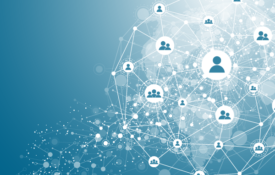-

Why an Early Start Is Key to Developing Musical Skill Later in Life
Is there a developmental period early in life when the brain is especially receptive to musical training? The answer, according to new research published in the journal Psychological Science, is probably not.
-
How To Keep Hope in Bleak Circumstances
While captive for more than seven years at the infamous Hỏa Lò Prison, nicknamed the "Hanoi Hilton," in Vietnam, US Navy Admiral James Stockdale was tortured more than 20 times. Enduring some of the harshest conditions a human can face, Stockdale led fellow service members held as prisoners of war with a thought process that combined open-eyed realism with a hope that circumstances would eventually improve. Holding realism and idealism together is key to surviving any severe situation, whether that be imprisonment, depression or a pandemic, said author and management consultant Jim Collins, who told Stockdale's story in the popular 2001 business book "Good to Great." ...
-
Combating an Epidemic of Loneliness
Humans can survive three minutes without air, three days without water, three weeks without food and — according to survival lore — three months without companionship. Whether true or not, what’s clear is that people need people. And pandemics, many of us are learning, can be lonely times. After months of lockdowns and shelter-in-place orders, some experts worry about a rise in the number of people feeling alone, especially young people and older adults. But resilience is also widespread, and studying loneliness can reveal a variety of ways to combat it.
-
Without Clear Pandemic Rules, People Take On More Risks As Fear And Vigilance Wane
... Research shows that when it comes to risk assessment, people are more likely to believe something hazardous will occur when they can easily picture it: Maybe it's already happened to them, or they've seen or heard about it happening to someone they know. "For millions of years, we learned what was risky from our own personal experience," said Gretchen Chapman, a psychologist and decision researcher at Carnegie Mellon University. "Now, we're supposed to learn about risk by looking at public health department websites, to see how the cases are going up. Our cognitive system is just not set up to respond to that input for risks." ...
-
You’re Choosing a Gift. Here’s What Not to Do.
APS Member/Author: Daniel T. Willingham ... Despite the stock saying, “It’s the thought that counts,” gift givers think that spending a lot — on diamonds, for example — shows that they care. When researchers asked people to recall a gift they gave and then to rate how much they thought recipients liked it, higher prices went with higher ratings. But when people made the same ratings for a gift they had received, price was completely unrelated to enjoyment. Second, give gifts that are actually usable.
-

Citizens Versus the Internet: How Psychological Science Can Confront Digital Challenges
The latest PSPI explores ways that psychological and behavior science can help decrease the negative consequences of Internet use.

